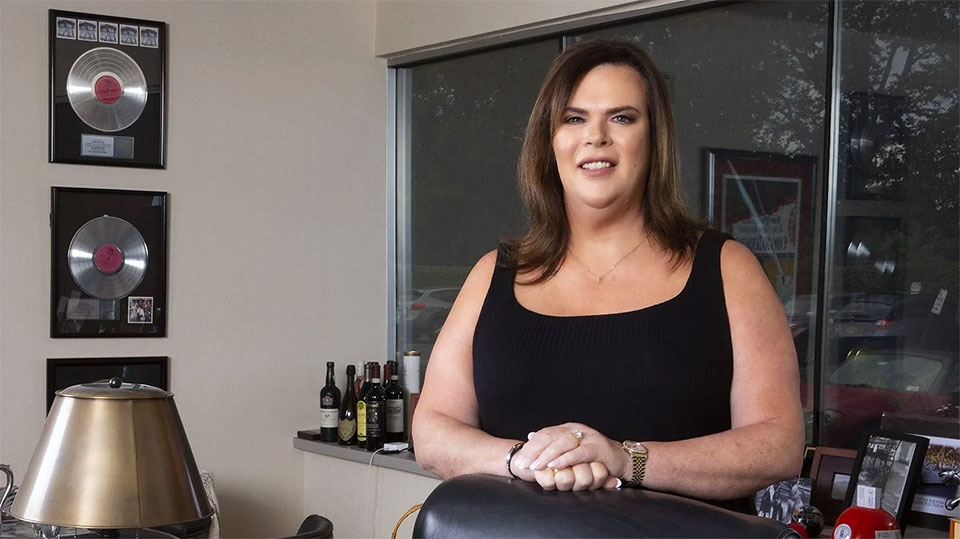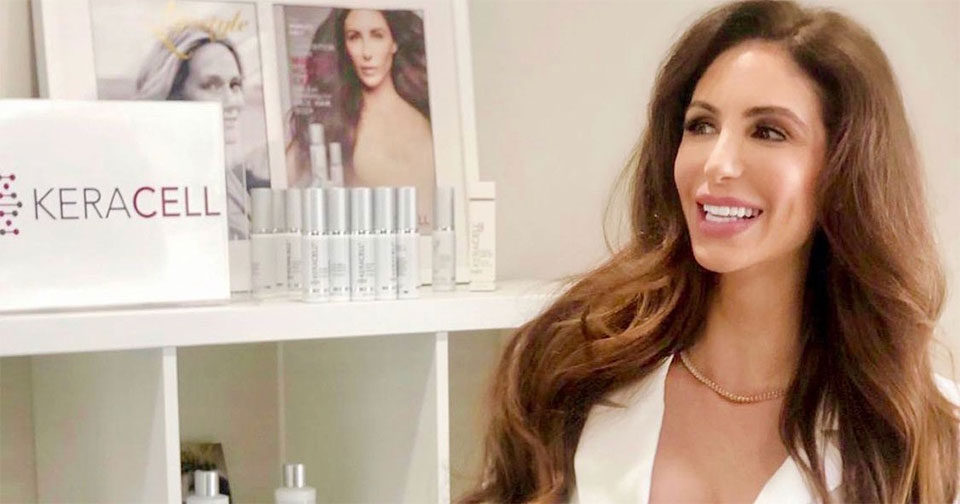CEOs Explain Retention Challenges Amid Work Culture Changes

Since April of 2021, millions of Americans in the workforce have quit their jobs. Whether due to feeling unappreciated in their previous jobs, to seek out more meaningful opportunities elsewhere, to achieve a better and healthier work-life balance, or some combination of these deciding factors, over 8 million Americans resigned from their jobs between September and October of this year alone.
Despite monthly job growth averaging some 582,000 openings each month this year, the “Great Resignation,” as it has come to be known, has caused many business owners to wonder about the deeper root cause of such unprecedented challenges in employee retention. Though the onset and spread of the COVID-19 pandemic is likely a major factor, some HR professionals are pointing the finger towards a second culprit: changes within the internal company culture.
Recently, we sat down with three CEOs — Wynne Nowland of Bradley & Parker, Victoria Liu of BYPPO, and Ekiz Ozlen of Keracell — and asked them how changes in work culture have affected their own company’s employee retention rates.
Continue reading on to find out what each CEO had to say.
Wynne Nowland — CEO, Bradley & Parker
Q: Since you joined Bradley & Parker in 1986, how have you noticed the company’s culture and values change?
Wynne Nowland: One of the greatest things I felt when I joined the company was how progressive they were back in 1986. We had a 4 ½-day work week, flexible hours, and even promoted working from home in special situations like for new parents. The culture was extremely welcoming and inclusive. It was a huge attraction when I joined the team. We had all of the building blocks firmly in place and have continued building on them because, like everything else, even if you have a great foundation in place, you need to pay attention to it and continue nurturing it.
Q: How have changes in your company’s culture affected your employee retention rates?
Wynne Nowland: Luckily, because of some of the things I mentioned above, our employee turnover rate historically has been very low.
Q: Have you noticed changes in your company’s culture increasing or decreasing in quantity and/or quality since you came out as a trans woman to your company via email?
Wynne Nowland: Our culture’s foundation was very good, but I do believe that my personal transition — since it was obviously, and by necessity, carried out in such a public way — has helped improve our culture. The support I was given by my team, our clients, and our business partners was sensational. I think those good vibes definitely reverberated throughout the company.
Q: Since being promoted to CEO of Bradley & Parker, what initiatives have you or your company implemented to foster positive values in its culture to improve employee retention?
Wynne Nowland: We have always been employee-focused, but I think that in the last several years we have ramped it up even more. We recognize employee achievement at four quarterly luncheons each year, and recognize employee milestones with a slightly larger annual celebration! Of course, the pandemic over the past few years has provided some additional challenges. We have been able to leverage technology to allow the vast majority of our employees the choice of whether to work from home or come to the office, which has been essential for our employee retention.
Q: In your opinion, what are some ways that employers can foster positive culture and values within their companies to mitigate employee turnover rates?
Wynne Nowland: I think that is relatively straightforward. Companies need to communicate their values and, more importantly, make sure they’re demonstrated in real and meaningful ways. Too often, companies make bold statements and initiatives but don’t follow through on the execution. Employees see through that quite easily, and the ripple effect of that is never positive.
Q: Is there anything you’d like to add in regards to the employee retention challenges happening nationwide?
Wynne Nowland: Right now, the biggest challenge companies have is maintaining their culture and enhancing it during this pandemic. Employees who have never been able to work from home now can. The genie is out of the bottle with respect to the effectiveness of working from home in many scenarios, and companies are going to have to recognize that going forward. Requiring people to work in a traditional business model may cause them to seek employment with a more flexible employer.
Victoria Liu — Founder, BYPPO
Q: What cultural values do you look for in prospective employees, and have those changed since you founded BYPPO?
Victoria Liu: Primarily I just look for hard-working, diligent, and persistent people. Without those personality traits, it’s extremely hard to scale a startup company like mine. We’re only entering into our third year of operations, and a lot of things are brand new that we’re all trying to figure out. Having the will to be persistent and knowing that there is light at the end of the tunnel is a big factor in whether or not I think an employee will be able to stay and hold out for the long run.
In terms of what values I’ve been looking for, they’ve definitely changed. When I founded BYPPO, I had never hired or interviewed anyone to work for [me before], so I was accepting of almost anyone that had any faith or believed that my company would be successful. Now, I’m much pickier about who works on projects with me and who joins the company, and their own values hold a lot of sway in that decision.
Q: What have been some of the most challenging aspects regarding the retention of employees?
Victoria Liu: The most challenging part of retention is just being able to have them understand their work. I work with a lot of students, so there’s a lot of juggling their studies and work. Many of them prioritize their academic careers over working for the company, so there’s a lot of student turnover at BYPPO. Some of that challenge involves just vetting out who is going to really understand the company but also having them realize that working for a startup is very different than working for a well-established corporation. Everyone at BYPPO is very open to discussion, so I let anyone bring up any issues with the company. There is no hierarchy.
Q: What are some cultural values that you have noticed both former and prospective employees express as important to them?
Victoria Liu: For their employer to understand where they’re coming from when they face difficulties with work and different projects. Communication is the biggest key to any sort of work for any personal or private relationship to be successful. You have to be able to communicate with your boss.
Q: In your opinion, what are some ways that employers can foster positive culture and values within their companies to mitigate employee turnover rates?
Victoria Liu: Check-in with [your employees] frequently, ask them how they feel, and understand what their goals are from the very beginning and conduct regular check-ins with them on their performance. Understand what they want and what the company wants from them so that there isn’t any surprising disappointment and everyone’s clear regarding their expectations.
Q: Is there anything you’d like to add in regards to the employee retention challenges happening nationwide?
Victoria Liu: Be patient. At the end of the day, the people who feel valued will stick around because they truly feel like their role is the right fit for them. I think everyone is in the midst of life changes from COVID, so there will be challenges for some time. Remain patient and understand that the right people will stick around.
Ekin Ozlen — Founder, Keracell
Q: What cultural values were most important to you when you founded Keracell? Have they changed since you started your company?
Ekin Ozlen: It’s always been important to me to have transparency and communication in regard to my managing style. Communication, as in any relationship, holds the key to the team being successful in any endeavor. I’m very hands-on in my approach to my business, which can be a good or bad thing because sometimes it’s difficult for me to delegate properly!
Q: If any, what have been some of the biggest challenges you have faced at Keracell regarding your company’s culture and its change over time?
Ekin Ozlen: We’re lucky in that we keep our team small and very close-knit, and I like my team to know that I’m accessible for any questions or any information they may need at any time. In the beginning, it was difficult for me to trust and delegate properly. I make every managerial and business decision purely off instinct.
As an owner, your business truly becomes your baby, but you have to learn to pass that over to people who you trust, who can take the ball and run with it. There were people involved at the beginning that aren’t any longer, but that’s not always a bad thing! It’s very instinctual running a business and you have to be very careful who you bring in, especially in an industry as saturated and competitive as the beauty industry.
Q: In your opinion, what are some ways that employers can foster positive culture and values within their companies to mitigate employee turnover rates?
Ekin Ozlen: I’m very lucky because I work with my family. We are extremely careful with one another and conscientious of what each one of us has as our strengths. We all have different things we bring to the table. At this point in the venture, we all know what our lane is and we don’t step on each other’s toes, but instead work toward a common goal: the success of the brand!
Q: Has using Human Cell Stem Technology in your products, caused any issues or challenges regarding past or current employees? If so, how?
Ekin Ozlen: The biggest challenge is educating those that we bring in so they really understand what it is that’s within our powerful product lines. I enjoy teaching, so for me, I look forward to educating personnel on this.
Q: Looking back to KERACELL’s inception, are there any values you wish you had made more important in your company’s culture earlier? Why or why not?
Ekin Ozlen: All in all, I’m extremely happy with my team. We are all very devoted to the brand and that is so necessary for this industry. I could not be more grateful!
Q: Is there anything you’d like to add in regards to the employee retention challenges happening nationwide?
Ekin Ozlen: I think it’s important to give people the space they need to perform well and to take responsibility for their work. I definitely don’t stand over anyone on my team. I just let them know that I’m here to help, answer their questions, and guide them. I have more of a hands-off approach when it comes to managerial styles, although I’m careful not to be overly critical. I always try to guide with care and positivity!
Have you read?
# Best Citizenship and Residency by Investment Programs.
# Richest People in New York and Their Net Worth, 2022.
# The World’s Top 10 CEOs Over 70 Years Old.
Bring the best of the CEOWORLD magazine's global journalism to audiences in the United States and around the world. - Add CEOWORLD magazine to your Google News feed.
Follow CEOWORLD magazine headlines on: Google News, LinkedIn, Twitter, and Facebook.
Copyright 2025 The CEOWORLD magazine. All rights reserved. This material (and any extract from it) must not be copied, redistributed or placed on any website, without CEOWORLD magazine' prior written consent. For media queries, please contact: info@ceoworld.biz











